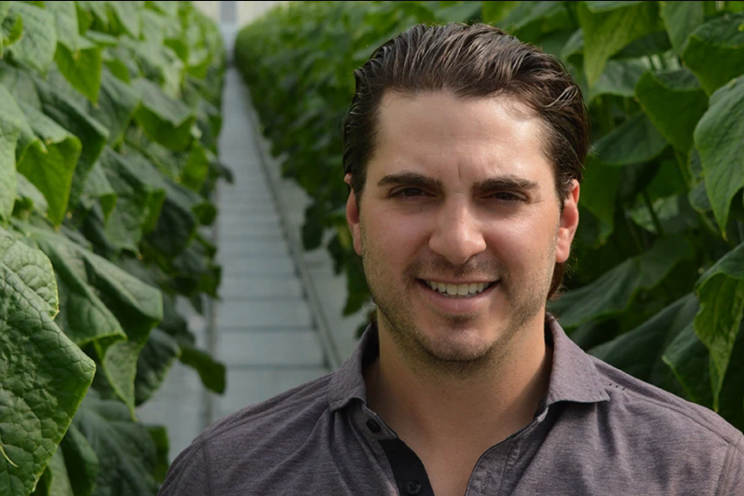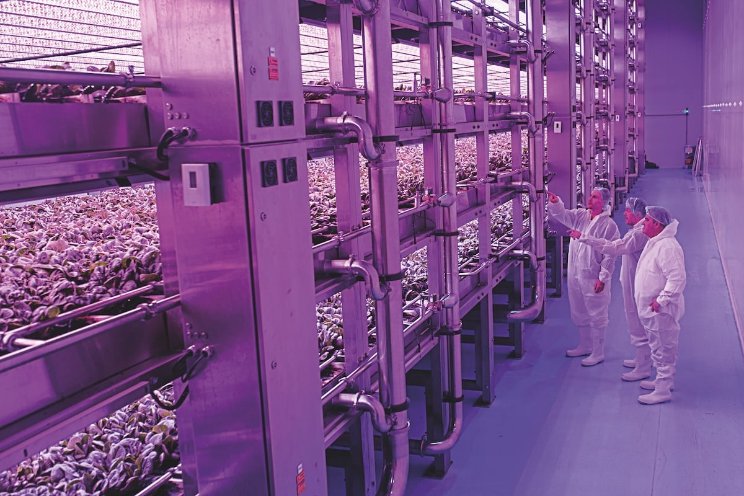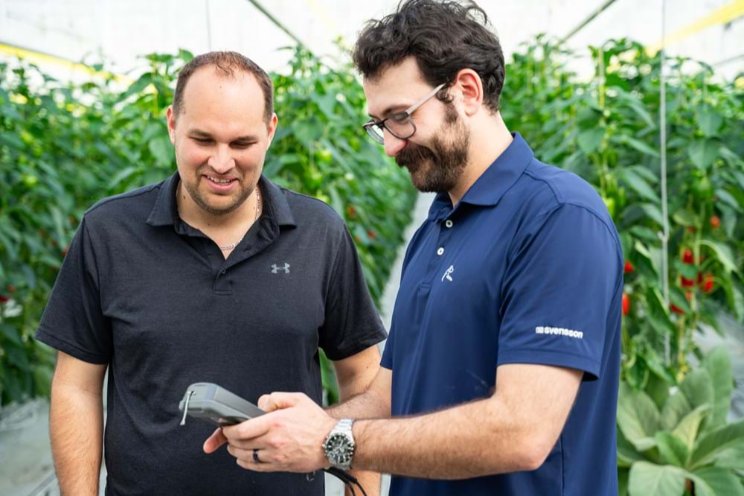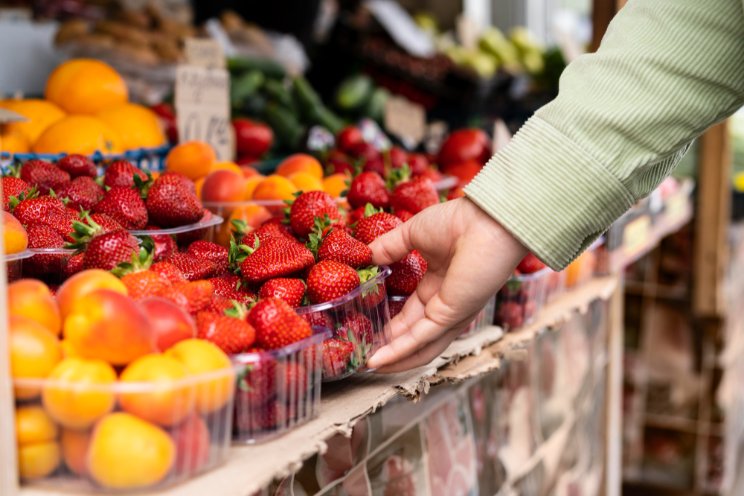More expensive fruit and veggies this summer
Added on 24 November 2020

Key points:
- WA's horticulture sector has been hit hard by a shortage of casual workers
- Some businesses are harvesting 50 per cent less produce than in other years
- Growers say a softer WA border is unlikely to fix the worker shortage
Premium fresh vegetables are being fed to livestock on some West Australian farms because the horticulture sector cannot find enough staff to pick, grade and pack its produce.
The worker shortage has already resulted in less fruit and vegetables being harvested across the state's key food bowl regions.
Fruitico, the state's largest table grape producer, processes about 800,000 cartons of fruit each year, which accounts for about 80 per cent of WA's total production.
Managing director Roger Fahl said unless the labour shortage was addressed, West Australians could expect to pay a lot more at the checkout this summer.
"We think that if we do run out of staff, which we certainly believe we probably will, the consequences of that will be that the focus will be on the better quality product which usually goes offshore," he said.

Farm workers are in short supply in Western Australia.(ABC News: Jessica Hayes)
"We'll find our domestic consumers will be the ones that will suffer.
"Less work will be done on the fruit … this time of year leading into Christmas when we remove all the leaves to set the crop up, the less of that work that gets done, the lower the quality of the product.
"I think we will see a higher cost in store and possibly for a lower-quality product."
Crops too hard to pick and pack
Patane Produce — based at Binningup, about 140 kilometres south of Perth — grows carrots, onions, broccoli and potatoes.
Unlike other growers in the region which operate on a seasonal basis, it is a business which harvests year-round and has been hit especially hard by the labour shortage.
While much of the harvest operations are done mechanically, the business has struggled to fill its packing shed with workers to process and grade goods.

Pennie Patane's business has been hard hit by the shortage of workers.(ABC News: Jessica Hayes)
Owner Pennie Patane said they had explored a range of options including school gap-year schemes, but it was not enough to fix the worker shortage.
"We've calculated in the last six months that we've had a reduction in our profit of about 80 per cent so it's getting down to the real thin end now," she said.
"We've probably gotten to the point where we're looking at crops and thinking 'that one is too hard to pack'.
"At this stage, we're probably only losing around 50 per cent of our crop that we would normally harvest … but that will only increase as time goes on.
"If it's a brassica we'll rotary hoe it back in, but in a lot of cases we will just harvest straight for cattle feed."
Softer border no solution
While WA's hard border has been softened, many growers say it was too late to alleviate the labour shortage because many itinerant workers, such as working holiday-makers, had already left the country.
Fruitico has partner producers in other states — including Victoria, Queensland and Tasmania — and Mr Fahl said farms operating in other states were facing the same labour shortage.
"We don't believe the softer borders will make a huge difference to the workforce," he said.

Fruit and vegetable growers are worried the worker shortage may continue into the coming years.(ABC News: Jessica Hayes)
"Traditionally it would be the backpackers who are moving, we may see some leave Victoria or Queensland, but as our border opens up there will be a lot of people who have been here for such a long time that will want to move as well.
"I think we'll see the numbers that leave being replaced, but no actual gain because backpackers are leaving the country in droves at the moment as their visas run out."
Backpackers hoping to head east
Canadian national Annie Stephenson arrived in WA in March as the pandemic started to ramp up. She has plans to leave for Sydney and Melbourne as soon as she is able.
"It depends on what the regulations are, everything is so unpredictable and changing week to week," she said.

Annie Stephenson has not had the chance to explore Australia's east coast due to the coronavirus pandemic.(ABC News: Jessica Hayes)
"We don't want to get over there and get stuck there and lose the opportunity to go home so we're playing it by ear.
"Luckily we did get a road trip within WA, we've been fortunate to explore the west coast, but not the east coast yet."
Fears of longer-term impact
There are now fears the labour shortages could have lasting ramifications for the industry, far beyond the busy looming summer harvest period.
"It [a longer term worker shortage] plays on our mind a lot, it keeps us up at night," Mr Fahl said.
"We've planted a lot of vast areas of new vineyard, our business plan is that we should be planting 50 hectares a year [but] as a board we are pulling back from that because we are extremely worried about whether we are going to have enough staff over the next year or two."
Agriculture Minister Alannah MacTiernan said the potential for the worker shortage to lead to higher consumer prices was front of mind for the State Government.
"We absolutely want fruit and veg to be available in our shops for West Australians so it's certainly one of the factors we're taking into account," she said.
"We totally accept there is a potential problem here.
"We need to have the harvest picked in order for there to be fruit and vegetables on the shelves of our stores and at a reasonable price.
"The other motivation is those horticulturalists that have worked so hard not to lose their crops."
Ni-Vanuatu workers to help
The State Government this week confirmed an additional 120 Ni-Vanuatu would arrive from the Northern Territory to help address the shortage.
The workers have already quarantined and will be sent to farms in the South West and Great Southern.
Plans for an additional 160 Ni-Vanuatu workers have been delayed due to a locally recorded COVID-19 case.
While the horticulture sector still requires thousands of workers, Ms MacTiernan said the measure would deliver a 'boost' for industry.
"There is no miracle cure here, there is overwhelming fact that we have relied very heavily on overseas labour and obviously during a pandemic that is going to be a challenge," she said.
Header photo: Roger Fahl says domestic consumers are the ones likely to be most affected by the worker shortage.(ABC News: Jessica Hayes)
Source: Abc.net
Source: Abc.net
More news















